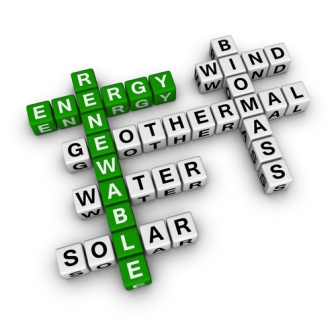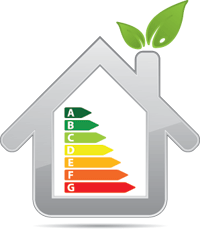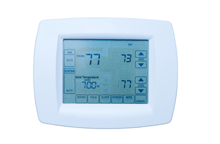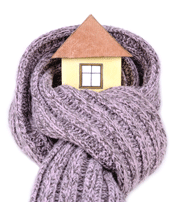★ ★ ★ ★ ★
"Always friendly. They show up within the time frame they promised. They always do a great job and inform you about all they did before leaving."
— John Gross
(Google Review)
★ ★ ★ ★ ★
"On Saturday, my water heater spewed lots of water in the utility portion of my garage. Unfortunately, my furnace was soaked. After my call to Hartman Bros., Darian arrived within the hour and dried out the furnace and re-started it. Hartman Bros. has been servicing my heating and cooling systems for over 30 years and have always been "johnny-on-the-spot" when I have had problems. I highly recommend them."
— Nancee L.
(Google Review)
★ ★ ★ ★ ★
"Rick Hartman of Hartman Brothers is a class act. He went above and beyond to make sure everything was as it should be... We would definitely recommend Hartman Brothers to everyone. Great customer service and an honest reputable business!"
— Sharon Nuerge
(Facebook Review)
★ ★ ★ ★ ★
"We were so impressed with our repairman! He explained everything very thoroughly of what repairs he needed to make to help our furnace to run more efficient. Also, when we called for a repairman, he was at our house within 30 minutes! WOW!"
— Jeffrey M.
(Google Review)
★ ★ ★ ★ ★
"Hartman brothers has always given me great service. I feel comfortable knowing they are taking care of my heating and ac needs.
Everyone is responsible, and I am very comfortable with all of the techs taking care of my maintenance even when I'm not home."
— Shelly Kline
(Google Review)
★ ★ ★ ★ ★
"Our air conditioning went out today. My husband called Hartman Brothers. They were here within 30 minutes. I can’t remember the guy’s name but he was very nice and did a great job! Hopefully we won’t have any more problems but if we do, we’ll call Hartman’s."
— Arlene Crouch
(Google Review)
★ ★ ★ ★ ★
"Thank you for fixing my furnace tonight!! It's cold and will be colder tomorrow night... I knew I made the right decision having you install my furnace and air conditioning. You are awesome!! I love my generator that you installed as well!"
— Cheryl Kensill
(Facebook Review)
★ ★ ★ ★ ★
"I have called Hartman Bros twice for problems with my home air conditioning. Both times I felt that the pricing was fair. I appreciate that they seem to start with trying to repair and not jump to replace."
— Stephanie S.
(Google Review)
 Before you replace the heart of your HVAC system, the furnace, it’s a good idea to learn about the three main factors that should help in your decision: size, fuel, and efficiency.
Before you replace the heart of your HVAC system, the furnace, it’s a good idea to learn about the three main factors that should help in your decision: size, fuel, and efficiency.

 Geothermal heating and cooling systems are gaining in popularity in the United States. They provide energy-efficient heating in the summer, by transferred heat energy from a few feet underground into the home, and cool your home in the summer by depositing heat energy from the home back into the ground. They manage this heat-exchange process by transferring the heat via a system of pipes, usually excavated and installed underground.
Geothermal heating and cooling systems are gaining in popularity in the United States. They provide energy-efficient heating in the summer, by transferred heat energy from a few feet underground into the home, and cool your home in the summer by depositing heat energy from the home back into the ground. They manage this heat-exchange process by transferring the heat via a system of pipes, usually excavated and installed underground.
 If you haven't had an
If you haven't had an  Your
Your  Perhaps you've lived comfortably in your Fort Wayne-area home for years, but you're thinking about selling your home now or sometime in the next several years. Energy efficiency upgrades may be a major upfront investment, but they can easily add appeal and value for potential buyers down the road.
Perhaps you've lived comfortably in your Fort Wayne-area home for years, but you're thinking about selling your home now or sometime in the next several years. Energy efficiency upgrades may be a major upfront investment, but they can easily add appeal and value for potential buyers down the road.
 The crawl space under your home may need your attention. Crawl spaces are areas under the floor of a home, or part of a home, that doesn't have a basement. They're the space enclosed by the foundation with dirt below and the first floor of the home above. They're often left without insulation after construction. This can lead to a damp crawl space that can cost you a lot in
The crawl space under your home may need your attention. Crawl spaces are areas under the floor of a home, or part of a home, that doesn't have a basement. They're the space enclosed by the foundation with dirt below and the first floor of the home above. They're often left without insulation after construction. This can lead to a damp crawl space that can cost you a lot in  The four components of geothermal heating and cooling systems include the outdoor loop field, the indoor heat pump unit, the thermostat, and the ductwork that delivers the conditioned air. A geothermal heat pump has
The four components of geothermal heating and cooling systems include the outdoor loop field, the indoor heat pump unit, the thermostat, and the ductwork that delivers the conditioned air. A geothermal heat pump has  If you have bought eligible energy-efficient equipment or home improvements in 2012 or 2013, there's still time to take advantage of federal tax credits before they expire. The reinstatement of the 25C residential
If you have bought eligible energy-efficient equipment or home improvements in 2012 or 2013, there's still time to take advantage of federal tax credits before they expire. The reinstatement of the 25C residential  You probably don't think about your home's duct system, but you should. A typical duct system can lose up to 40 percent of conditioned air that flows through it. By making a few adjustments and having yearly maintenance done, you can
You probably don't think about your home's duct system, but you should. A typical duct system can lose up to 40 percent of conditioned air that flows through it. By making a few adjustments and having yearly maintenance done, you can  Now that the heating season is well under way in Indiana, you want to be sure that your furnace stays in good condition. But sometimes despite your best efforts, an older furnace will begin acting up. Here are eight helpful tips to consider if you believe that your furnace is in trouble:
Now that the heating season is well under way in Indiana, you want to be sure that your furnace stays in good condition. But sometimes despite your best efforts, an older furnace will begin acting up. Here are eight helpful tips to consider if you believe that your furnace is in trouble:
 If you’re interested in a comfortable and energy-efficient way of heating your Fort Wayne area home this winter, having a
If you’re interested in a comfortable and energy-efficient way of heating your Fort Wayne area home this winter, having a  You know your home has
You know your home has  Unless you live in an old farmhouse full of leaks and drafts, shutting a room to save energy is likely to backfire. A study done by the Lawrence Berkeley National Laboratory found that closing off registers in select rooms actually was more likely to increase energy use in energy-efficient homes. How is that possible?
Unless you live in an old farmhouse full of leaks and drafts, shutting a room to save energy is likely to backfire. A study done by the Lawrence Berkeley National Laboratory found that closing off registers in select rooms actually was more likely to increase energy use in energy-efficient homes. How is that possible?
 There are plenty of things you can do to reduce the amount of dust in your air. Here are seven tips to improve your indoor-air quality while cleaning.
There are plenty of things you can do to reduce the amount of dust in your air. Here are seven tips to improve your indoor-air quality while cleaning.
 Rather than gasping when you receive your monthly energy bill, use a few winter
Rather than gasping when you receive your monthly energy bill, use a few winter  Boiler issues are no laughing matter in the middle of a northern Indiana cold spell; neither are the ominous noises signaling a troubled system. Use these tips to help quickly find and troubleshoot common issues so you can keep the heat pumping until
Boiler issues are no laughing matter in the middle of a northern Indiana cold spell; neither are the ominous noises signaling a troubled system. Use these tips to help quickly find and troubleshoot common issues so you can keep the heat pumping until  In homes heated by a furnace, setting the temperature back at night ensures energy savings. That’s not necessarily the case with a
In homes heated by a furnace, setting the temperature back at night ensures energy savings. That’s not necessarily the case with a  If your old furnace has finally given out or you're planning on building a home, you may find yourself wading into the debate over
If your old furnace has finally given out or you're planning on building a home, you may find yourself wading into the debate over  With another frigid Fort Wayne winter looming, many homeowners wonder if heating the garage is viable. They may want to use the garage as a work- or playroom, or for some other useful purpose. If you decide to heat the garage, choose safety first. Avoid unvented combustion space heaters, which can emit soot, moisture, or even toxic carbon monoxide.
With another frigid Fort Wayne winter looming, many homeowners wonder if heating the garage is viable. They may want to use the garage as a work- or playroom, or for some other useful purpose. If you decide to heat the garage, choose safety first. Avoid unvented combustion space heaters, which can emit soot, moisture, or even toxic carbon monoxide.
 As winter months approach, you'll want to include a bit of off-season maintenance for your outside A/C condensing unit. Though you may be tempted to let the condenser sit uncovered through the winter, a little
As winter months approach, you'll want to include a bit of off-season maintenance for your outside A/C condensing unit. Though you may be tempted to let the condenser sit uncovered through the winter, a little 